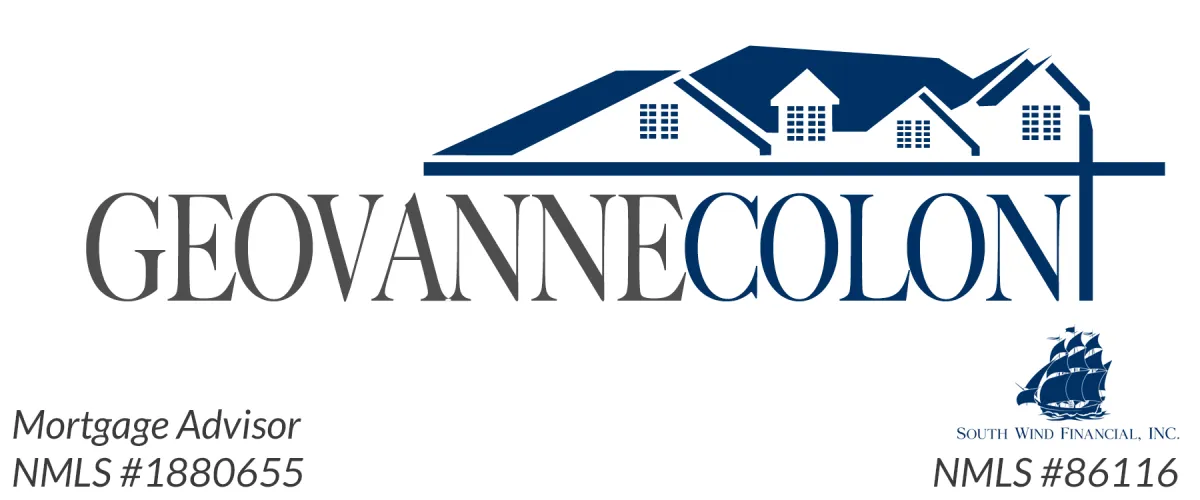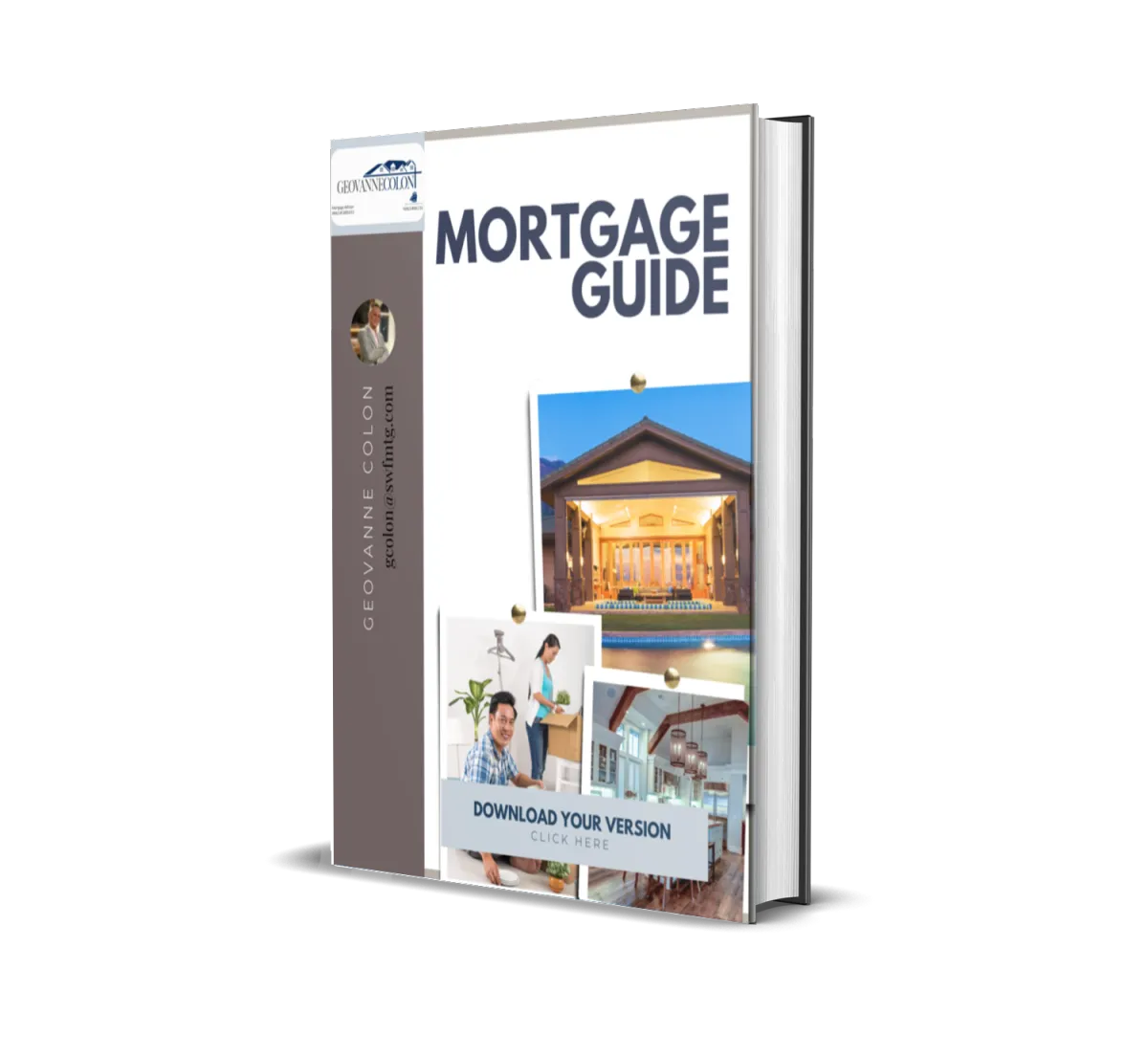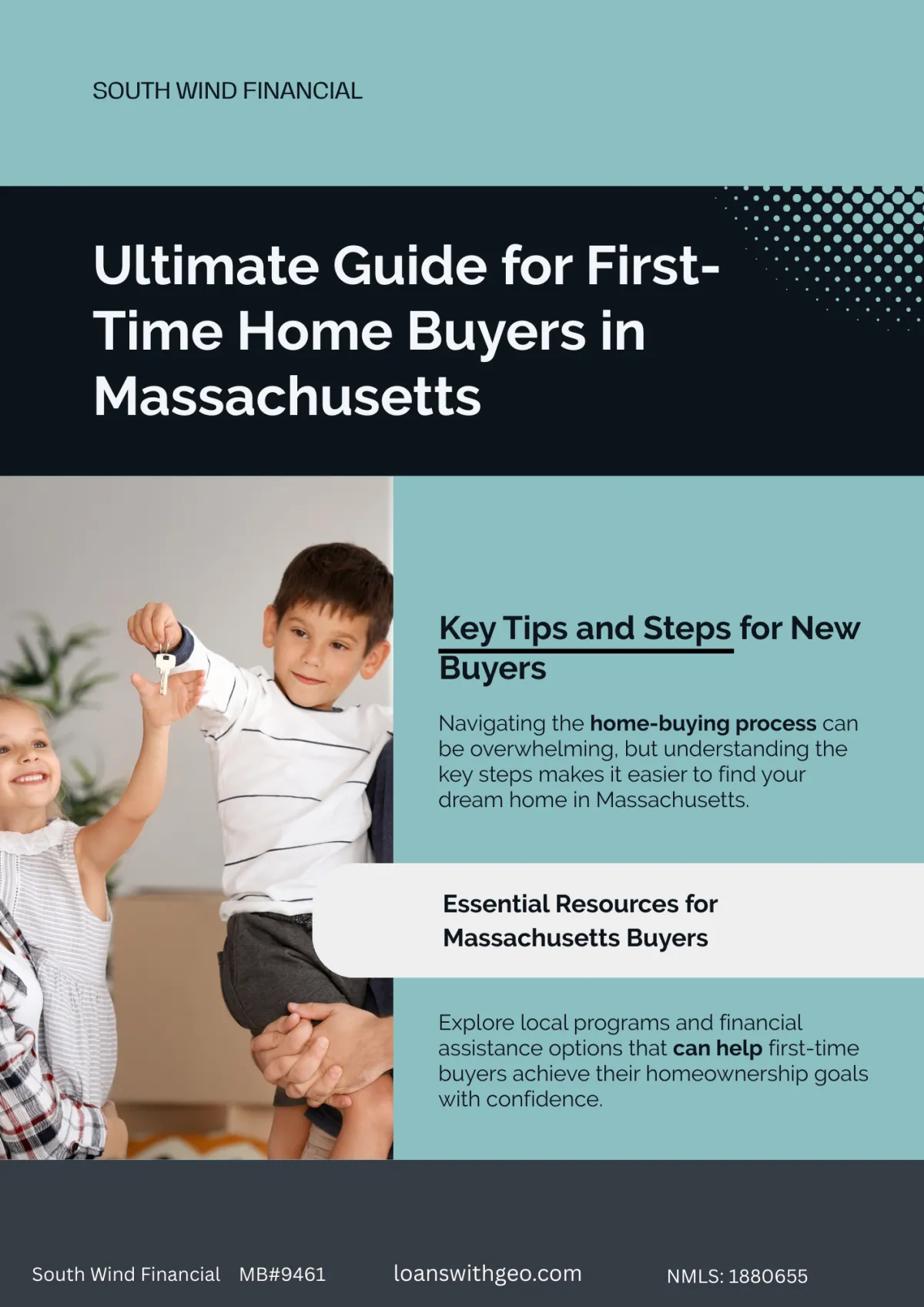617-821-1757

Looking For FHA Loans?
Apply today for the mortgage
that’s right for you.
Unlock Low Rates with Ease
Discover how Geovanne Colon simplifies the mortgage qualification process for you.
Apply today for the mortgage
that’s right for you.
Unlock Low Rates with Ease
Discover how Geovanne Colon simplifies the mortgage qualification process for you.
Low Rate.
Zero Hassles.
Get a free quote
Low Rate.
Zero Hassles.
Get a free quote
Feel Overwhelmed by Mortgage Choices? I Understand.

Feeling Lost in a Sea of Mortgage Options? Finding the right mortgage can be a daunting task. With an overwhelming array of rates, terms, and lenders, it's easy to feel lost and uncertain. Are you worried about high interest rates, hidden fees, or choosing a mortgage that doesn't fit your long-term goals?
Why Choose Us?
Ready to Start?
Your perfect home won't wait forever, and neither should you. Begin your journey today with a loan officer that puts you first. By choosing us, you're not just getting a loan – you're gaining a lifelong partner in all your mortgage endeavors.
Start your no-obligation consultation now and join the myriad of satisfied homeowners who have unlocked the doors to their future with ease and confidence. Dive into our world of simplified lending, and let's turn your homeownership dreams into reality.
Welcome Home!
Loan Programs We Help With
Seamless Solutions, Limitless Possibilities
Residential Mortgage Programs
1. FHA Loans
Federal Housing Administration (FHA) Loans
• Suitable for first-time homebuyers
• Low down payment options (as low as 3.5%)
• Requires mortgage insurance
• Lenient credit scores accepted
• 203K Renovation Loans Available
2. Conventional Loans
Conventional Mortgage Loans
• Preferred by borrowers with stronger credit
• Down payments as low as 3%
• Available in fixed or adjustable rates
• No government insurance premiums
• HomeStyle Renovation Loan Available
3. USDA Loans
US Department of Agriculture (USDA) Loans
• Ideal for eligible rural and suburban homebuyers
• Zero down payment
• Low insurance costs
• Income and geographic restrictions apply
4. VA Loans
Veterans Affairs (VA) Mortgage Loans
• Exclusively for veterans, active-duty service members, and eligible spouses
• No down payment required
• No mortgage insurance needed
• Competitive interest rates
A. ITIN - No Social Security Loans
• For borrowers with an Individual Tax Identification Number
• Lacks Social Security number
B. 1099 Loans
• Designed for independent contractors or self-employed individuals
• Based on the 1099 tax form income
C. VOE Only
• Verification of employment as the primary source of income validation
D. Asset Depletion
• Utilizes borrower's liquid assets for qualification purposes
E. Bank Statement Loans
• Income based on bank statements, suitable for self-employed borrowers
F. DSCR - Investor No Income Verification
• For real estate investors, using property cash flow as a qualification metric
Non-Qualified Mortgage (Non-QM) Loans
Loan Programs We Help With
Seamless Solutions, Limitless Possibilities
Residential Mortgage Programs
1. FHA Loans
Federal Housing Administration (FHA) Loans
• Suitable for first-time homebuyers
• Low down payment options (as low as 3.5%)
• Requires mortgage insurance
• Lenient credit scores accepted
2. Conventional Loans
Conventional Mortgage Loans
• Preferred by borrowers with stronger credit
• Down payments as low as 3%
• Available in fixed or adjustable rates
• No government insurance premiums
3. USDA Loans
US Department of Agriculture (USDA) Loans
• Ideal for eligible rural and suburban homebuyers
• Zero down payment
• Low insurance costs
• Income and geographic restrictions apply
4. VA Loans
Veterans Affairs (VA) Loans
• Exclusively for veterans, active-duty service members, and eligible spouses
• No down payment required
• No mortgage insurance needed
• Competitive interest rates
Non-Qualified Mortgage (Non-QM) Loans
A. ITIN - No Social Security Loans
• For borrowers with an Individual Tax Identification Number
• Lacks Social Security number
B. 1099 Loans
• Designed for independent contractors or self-employed individuals
• Based on the 1099 tax form income
C. VOE Only
• Verification of employment as the primary source of income validation
D. Asset Depletion
• Utilizes borrower's liquid assets for qualification purposes
E. Bank Statement Loans
• Income based on bank statements, suitable for self-employed borrowers
F. DSCR - Investor No Income Verification
• For real estate investors, using property cash flow as a qualification metric
More Loan Programs
Foreign National Loans
• Tailored for non-U.S. citizens looking to buy investment or vacation properties in the U.S.
• May require larger down payments and proof of foreign income.
Jumbo Loans
• Exceed the loan limits set by the FHFA for conventional mortgages.
• Requires non-traditional underwriting to accommodate the larger loan amount.
Real Estate Investor Loans
• Customized loans for experienced real estate investors.
• Can include options for multiple properties under a single loan (blanket loans).
Non-Warrantable Condo Loans
• For condos that do not meet specific requirements by Fannie Mae or Freddie Mac.
• Necessary for financing condos in buildings with more owner-occupied spaces or litigation issues.
Credit Event Loans
• Available to borrowers with significant derogatory credit events, such as bankruptcy or foreclosure.
• Typically requires a higher down payment or additional reserves.
Hard Money/Private Lending
•For immediate or short-term financing needs
• Higher-cost, short-term loans
• Asset-based lending criteria
• Terms typically around 12 months
Fix and Flips
• Loans crafted for renovating and flipping properties
Commercial Loans
•Tailored for businesses to purchase or refinance commercial property
• Offering solutions for office buildings, retail spaces, and industrial properties
• Custom terms to align with business strategies
New Construction
• Financing for ground-up construction projects
Small Business Administration (SBA) Loans
• Federally backed to help start or grow a business
• Lower down payments
• Longer repayment terms
• Focused on small businesses
Bridge Loans
• Short-term loans to bridge the gap during transitional periods
Down Payment Assistance Programs
• Provides prospective homebuyers with loans or grants that they can use toward the down payment for a house.
• Most down payment assistance programs are designed for first-time homebuyers and offered by various institutions, such as government, non-profits, or lenders.
More Loan Programs
Foreign National Loans
• Tailored for non-U.S. citizens looking to buy investment or vacation properties in the U.S.
• May require larger down payments and proof of foreign income.
Jumbo Loans
• Exceed the loan limits set by the FHFA for conventional mortgages.
• Requires non-traditional underwriting to accommodate the larger loan amount.
Real Estate Investor Loans
• Customized loans for experienced real estate investors.
• Can include options for multiple properties under a single loan (blanket loans).
Non-Warrantable Condo Loans
• For condos that do not meet specific requirements by Fannie Mae or Freddie Mac.
• Necessary for financing condos in buildings with more owner-occupied spaces or litigation issues.
Credit Event Loans
• Available to borrowers with significant derogatory credit events, such as bankruptcy or foreclosure.
• Typically requires a higher down payment or additional reserves.
Hard Money/Private Lending
•For immediate or short-term financing needs
• Higher-cost, short-term loans
• Asset-based lending criteria
• Terms typically around 12 months
Fix and Flips
• Loans crafted for renovating and flipping properties
Commercial Loans
•Tailored for businesses to purchase or refinance commercial property
• Offering solutions for office buildings, retail spaces, and industrial properties
• Custom terms to align with business strategies
New Construction
• Financing for ground-up construction projects
Small Business Administration (SBA) Loans
• Federally backed to help start or grow a business
• Lower down payments
• Longer repayment terms
• Focused on small businesses
Bridge Loans
• Short-term loans to bridge the gap during transitional periods
Down Payment Assistance Programs
• Provides prospective homebuyers with loans or grants that they can use toward the down payment for a house.
• Most down payment assistance programs are designed for first-time homebuyers and offered by various institutions, such as government, non-profits, or lenders.
Who We Help?
Seamless Solutions, Limitless Possibilities
First Time Home Buyers
We know how overwhelming the process of buying a home is, especially if it is the first time that you're doing it. We will work closely with you to explain the process, to protect you from making mistakes that could cost you later, and to ensure that your mortgage gets approved and you get the home that you are so excited to be buying!
Move Up and Second Home Buyers
Buying a new home when you currently own one has it's own unique set of concerns. We can answer all of your questions about how to qualify and purchase a home when you already own one whether you're buying a new primary residence or a second vacation home.
Refinancing Home Owners
If you already own your home but you are looking to refinance to either save money with a lower interest rate or possibly take some cash out for any reason, we can help you with that. We also can show you how to make sure you are structuring your new financing to get the best deal possible.
Investment Buyers
If you're buying real estate for investment purposes, we can help you secure low rate financing to maximize your ROI.
Seniors Seeking Reverse Mortgages
If you are 62 years or older and are looking for options to stay in your home without a mortgage payment or to access your home's equity while still living there, I can answer your questions about reverse mortgages so you can decide if they are right for you.
What My Clients Say
Ready to Find Your Perfect Mortgage?
Are You A First Time Home Buyer?
Download Our Free Home Buyer's Guide

Other Resources You'll Find Helpful

Buyer's Guide for Real Estate Agent
(English)

Buyer's Guide for Real Estate Agent
(Spanish)

Seller's Guide for Real Estate Agent
(English)

Seller's Guide for Real Estate Agent
(Spanish)
Calculate Your Mortgage Payment
Our Blogs

The Ultimate Guide for First-Time Home Buyers in Massachusetts
The Ultimate Guide for First-Time Home Buyers in Massachusetts
Purchasing your first home is an exhilarating milestone that comes with numerous opportunities and challenges. For first-time homebuyers in Massachusetts, understanding the local real estate market is essential to ensure a smooth buying process. This guide offers essential tips, expert advice, and insights into the Massachusetts market, equipping you to navigate your journey confidently.
Understanding the Massachusetts Housing Market
As we move through 2025, the Massachusetts real estate landscape continues to evolve, influenced by various economic factors, shifting buyer sentiment, and changes in mortgage rates. Here’s what you need to know to prepare for your home search.
Current Market Overview
In 2025, the average home value in Massachusetts is approximately $658,559, reflecting a 2.1% increase over the past year. While earlier projections anticipated a more significant rise, the market shows signs of stabilization with flattening expectations for future price increases.
The competitive climate remains robust, characterized by a sale-to-list price ratio of over 106%, meaning homes are commonly selling for above their asking prices due to low inventory and high buyer demand.
This competitive landscape emphasizes the importance of being prepared, informed, and ready to act when suitable opportunities arise.
Interest Rates and Buyer Power
As of now, the average interest rate for a 30-year fixed mortgage hovers around 6.8%. Although this is notably higher than the historic lows we saw in the past few years, it represents the new normal for potential buyers. Candidates should be prepared for fluctuations in rates and work on their financial strategies accordingly.
Neighborhood Insights
Massachusetts is home to a rich array of neighborhoods, each offering distinct lifestyles. Regions such as Boston, Cambridge, Worcester, and Springfield cater to varying demographics, from young professionals seeking vibrant urban settings to families desiring quieter suburban areas. Here are some neighborhoods to consider:
Boston: Known for its historical significance and cultural attractions, Boston’s housing market is competitive, with prices often exceeding $700,000. The city boasts diverse amenities, cultural institutions, and excellent public transportation options.
Cambridge: Home to prestigious universities and a culturally rich environment, Cambridge features charming streets and a bustling atmosphere, with homes averaging around $800,000. The area appeals to academics and professionals alike.
Lowell: With a median home price of approximately $400,000, Lowell is known for its rich industrial history and cultural diversity. It offers a mix of urban and suburban living, with access to numerous amenities and parks.
Cape Cod: As a popular vacation destination, Cape Cod features stunning beaches and charming villages, with median home prices around $650,000. Prices can vary significantly depending on the town, with some desirable locations exceeding $1 million.
Fall River: This city boasts a median home price of about $350,000 and features waterfront access, making it an affordable option with a growing community and historical attractions.
Worcester: Offering a more affordable alternative, Worcester's median home prices hover around $450,000, making it attractive for first-time homebuyers. The city combines a vibrant arts scene with a family-friendly environment.
Springfield: Known for its historical significance, Springfield has median home prices around $300,000, providing affordable housing and a vibrant community atmosphere.
Quincy: With a median home price of approximately $555,000, Quincy offers a coastal lifestyle and diverse amenities, appealing to families and commuters due to its proximity to Boston.
Choosing the right neighborhood involves evaluating commuting options, local amenities, school districts, and the potential for future growth, helping you find the perfect community for your needs.
Preparing for Homeownership
Step 1: Assess Your Financial Situation
Prior to embarking on your home-buying journey, you must conduct a comprehensive assessment of your financial situation. This step includes budget planning, savings analysis, and evaluating your credit score.
Budget: Determine your price range by considering your income, debt-to-income ratio, and lifestyle needs. Utilize online mortgage calculators to better understand your financial capacity and to see what monthly payments may look like based on different home prices.
Savings: First-time homebuyers in Massachusetts generally aim for a down payment ranging from 3% to 20%. A 20% down payment for a median home value would be around $135,100. However, if you can’t afford a 20% down payment, options like FHA loans and down payment assistance programs are available.
Credit Score: Your credit score significantly affects your mortgage eligibility and interest rates. Ideally, aim for a score of 680 or higher to access competitive loan terms. If your score falls below this threshold, consider taking steps to improve it before proceeding with financing.
Step 2: Explore Mortgage Options
Understanding the various mortgage options available is vital for first-time buyers. Each loan type provides different benefits and requirements:
Conventional Loans: These mortgages are not backed by government agencies and typically require a higher credit score and a larger down payment. However, they can offer competitive interest rates, making them an attractive option for buyers with sound financial records.
FHA Loans: Insured by the Federal Housing Administration, FHA loans offer a more accessible path for first-time buyers, allowing down payments as low as 3.5% and having more lenient credit score requirements.
MassHousing Loans: The Massachusetts Housing Finance Agency provides several mortgage programs designed specifically for first-time homebuyers. These programs can assist with down payments and often feature competitive interest rates, making them appealing options for new homeowners.
Step 3: Get Pre-Approved for a Mortgage
Obtaining pre-approval for a mortgage should be one of your first steps in the home-buying process. A pre-approval letter provides proof to sellers that you are a serious buyer and helps outline your budget, making it easier to shop within your financial range.
Step 4: Hire a Real Estate Agent
Partnering with a knowledgeable local real estate agent is crucial for first-time buyers. A good agent will help:
Identify Suitable Properties: Agents understand the local market and can help find homes that match your preferences and budget.
Negotiate Offers: Experienced agents have the negotiation skills essential for making competitive offers and navigating bidding wars—crucial in a strong market.
Guide You Through Closing: Your agent will manage many details, ensuring that all documentation is accurate, timelines are met, and any issues arising during the closing process are effectively handled.
The Home Search Process
Step 5: Define Your Criteria
Before starting your search, it’s essential to define your criteria based on your preferences and lifestyle. Consider the following factors:
Lifestyle Needs: Reflect on your daily routines and priorities. Do you prioritize being close to work, schools, or entertainment options?
Type of Home: Decide whether you want a single-family home, a condo, or a townhouse. Each option comes with distinct benefits and limitations.
Key Features: Make a comprehensive list of must-have features—how many bedrooms and bathrooms are necessary? Do you desire outdoor space or specific amenities?
Step 6: Attend Open Houses
Open houses provide an excellent opportunity to see properties in person. Use this chance to assess neighborhood vibes, compare homes, and evaluate how they align with your criteria. Attending multiple open houses will give you a broader perspective and help you make well-informed decisions.
Step 7: Make an Offer
When you find a property that fits your needs, collaborate with your real estate agent to craft a competitive offer.
Market Analysis: Your agent will utilize a comparative market analysis (CMA) to determine a fair offer based on recent sales of comparable properties in the neighborhood.
Inclusions and Contingencies: Include specific contingencies in your offer to protect your interests, such as a home inspection clause and financing contingencies.
The Closing Process
Step 8: Home Inspection and Appraisal
After your offer is accepted, schedule a home inspection as the next most crucial step. A comprehensive home inspection will identify any potential issues with the property. Hire a reputable inspector to assess the home's condition, systems, and structure.
An appraisal will also be necessary as your lender seeks to ensure that the home's value matches the price you’re paying. This protects both your investment and the lender’s interests.
Step 9: Review Closing Disclosure
You will receive a Closing Disclosure at least three days before your closing appointment. This document outlines your loan terms, monthly payments, and closing costs. Review this thoroughly and discuss any questions or discrepancies with your lender.
Step 10: Final Walkthrough
Conduct a final walkthrough of the property before closing day. This step allows you to confirm that the home is in satisfactory condition and that any agreed-upon repairs were completed. Ensure no items have been removed from the property without consent.
Step 11: Closing Day
On closing day, you will sign several important documents, including the mortgage agreement and property deed. You will also need to pay your down payment and any closing costs. Upon completion of these steps, you will receive the keys to your new home, officially making you a homeowner!
Post-Purchase Considerations
Home Maintenance
Once you’ve moved in, regular maintenance is essential for maintaining your home’s value. Create and adhere to a seasonal checklist, which should include tasks such as HVAC servicing, lawn care, and regular inspections of critical systems including plumbing and roofing.
Financial Responsibilities
After closing, prioritize budgeting for your new monthly expenses. This includes your mortgage payment along with property taxes, homeowner's insurance, and routine home upkeep. Establishing a reserve fund for unexpected repairs will ensure that you’re financially prepared for homeowner surprises.
Resources for First-Time Homebuyers
Down Payment Assistance Programs
In Massachusetts, several resources are available for first-time homebuyers, including down payment assistance programs. Potential buyers may qualify for financial help, which can significantly reduce the burden of upfront costs. For instance, MassHousing offers a program that may provide up to $30,000 in down payment assistance for qualified individuals.
Additionally, many cities and towns in Massachusetts offer specific programs that enable eligible first-time buyers to access low-interest loans and other resources. Consult your local housing agency to learn about what programs are available in your area.
Educational Resources
Various institutions and organizations provide educational resources and workshops for first-time homebuyers, helping them make informed decisions throughout their journey. Attending these workshops can provide insights into the market, financing options, and the homebuying process itself.
Conclusion and Call to Action
Navigating the home-buying process as a first-time homebuyer in Massachusetts can be daunting, but with the right knowledge and support, you can achieve the dream of homeownership.
At South Wind Financial, we're dedicated to guiding you through every step of the mortgage process. With expert assistance and tailored solutions to meet your needs, we’re here to empower your journey toward purchasing a home.
Are you ready to embark on your journey to homeownership? Contact GeoVanne Colon at South Wind Financial today at 617-821-1757 or email [email protected]. You can also visit our website at loanswithgeo.com for more information about how we can help you navigate the home-buying landscape.
Your dream home awaits—let us help you make it a reality!
South Wind Financial is NMLS #9462, GeoVanne Colon NMLS #1880655.

The Ultimate Guide for First-Time Home Buyers in Massachusetts
The Ultimate Guide for First-Time Home Buyers in Massachusetts
Purchasing your first home is an exhilarating milestone that comes with numerous opportunities and challenges. For first-time homebuyers in Massachusetts, understanding the local real estate market is essential to ensure a smooth buying process. This guide offers essential tips, expert advice, and insights into the Massachusetts market, equipping you to navigate your journey confidently.
Understanding the Massachusetts Housing Market
As we move through 2025, the Massachusetts real estate landscape continues to evolve, influenced by various economic factors, shifting buyer sentiment, and changes in mortgage rates. Here’s what you need to know to prepare for your home search.
Current Market Overview
In 2025, the average home value in Massachusetts is approximately $658,559, reflecting a 2.1% increase over the past year. While earlier projections anticipated a more significant rise, the market shows signs of stabilization with flattening expectations for future price increases.
The competitive climate remains robust, characterized by a sale-to-list price ratio of over 106%, meaning homes are commonly selling for above their asking prices due to low inventory and high buyer demand.
This competitive landscape emphasizes the importance of being prepared, informed, and ready to act when suitable opportunities arise.
Interest Rates and Buyer Power
As of now, the average interest rate for a 30-year fixed mortgage hovers around 6.8%. Although this is notably higher than the historic lows we saw in the past few years, it represents the new normal for potential buyers. Candidates should be prepared for fluctuations in rates and work on their financial strategies accordingly.
Neighborhood Insights
Massachusetts is home to a rich array of neighborhoods, each offering distinct lifestyles. Regions such as Boston, Cambridge, Worcester, and Springfield cater to varying demographics, from young professionals seeking vibrant urban settings to families desiring quieter suburban areas. Here are some neighborhoods to consider:
Boston: Known for its historical significance and cultural attractions, Boston’s housing market is competitive, with prices often exceeding $700,000. The city boasts diverse amenities, cultural institutions, and excellent public transportation options.
Cambridge: Home to prestigious universities and a culturally rich environment, Cambridge features charming streets and a bustling atmosphere, with homes averaging around $800,000. The area appeals to academics and professionals alike.
Lowell: With a median home price of approximately $400,000, Lowell is known for its rich industrial history and cultural diversity. It offers a mix of urban and suburban living, with access to numerous amenities and parks.
Cape Cod: As a popular vacation destination, Cape Cod features stunning beaches and charming villages, with median home prices around $650,000. Prices can vary significantly depending on the town, with some desirable locations exceeding $1 million.
Fall River: This city boasts a median home price of about $350,000 and features waterfront access, making it an affordable option with a growing community and historical attractions.
Worcester: Offering a more affordable alternative, Worcester's median home prices hover around $450,000, making it attractive for first-time homebuyers. The city combines a vibrant arts scene with a family-friendly environment.
Springfield: Known for its historical significance, Springfield has median home prices around $300,000, providing affordable housing and a vibrant community atmosphere.
Quincy: With a median home price of approximately $555,000, Quincy offers a coastal lifestyle and diverse amenities, appealing to families and commuters due to its proximity to Boston.
Choosing the right neighborhood involves evaluating commuting options, local amenities, school districts, and the potential for future growth, helping you find the perfect community for your needs.
Preparing for Homeownership
Step 1: Assess Your Financial Situation
Prior to embarking on your home-buying journey, you must conduct a comprehensive assessment of your financial situation. This step includes budget planning, savings analysis, and evaluating your credit score.
Budget: Determine your price range by considering your income, debt-to-income ratio, and lifestyle needs. Utilize online mortgage calculators to better understand your financial capacity and to see what monthly payments may look like based on different home prices.
Savings: First-time homebuyers in Massachusetts generally aim for a down payment ranging from 3% to 20%. A 20% down payment for a median home value would be around $135,100. However, if you can’t afford a 20% down payment, options like FHA loans and down payment assistance programs are available.
Credit Score: Your credit score significantly affects your mortgage eligibility and interest rates. Ideally, aim for a score of 680 or higher to access competitive loan terms. If your score falls below this threshold, consider taking steps to improve it before proceeding with financing.
Step 2: Explore Mortgage Options
Understanding the various mortgage options available is vital for first-time buyers. Each loan type provides different benefits and requirements:
Conventional Loans: These mortgages are not backed by government agencies and typically require a higher credit score and a larger down payment. However, they can offer competitive interest rates, making them an attractive option for buyers with sound financial records.
FHA Loans: Insured by the Federal Housing Administration, FHA loans offer a more accessible path for first-time buyers, allowing down payments as low as 3.5% and having more lenient credit score requirements.
MassHousing Loans: The Massachusetts Housing Finance Agency provides several mortgage programs designed specifically for first-time homebuyers. These programs can assist with down payments and often feature competitive interest rates, making them appealing options for new homeowners.
Step 3: Get Pre-Approved for a Mortgage
Obtaining pre-approval for a mortgage should be one of your first steps in the home-buying process. A pre-approval letter provides proof to sellers that you are a serious buyer and helps outline your budget, making it easier to shop within your financial range.
Step 4: Hire a Real Estate Agent
Partnering with a knowledgeable local real estate agent is crucial for first-time buyers. A good agent will help:
Identify Suitable Properties: Agents understand the local market and can help find homes that match your preferences and budget.
Negotiate Offers: Experienced agents have the negotiation skills essential for making competitive offers and navigating bidding wars—crucial in a strong market.
Guide You Through Closing: Your agent will manage many details, ensuring that all documentation is accurate, timelines are met, and any issues arising during the closing process are effectively handled.
The Home Search Process
Step 5: Define Your Criteria
Before starting your search, it’s essential to define your criteria based on your preferences and lifestyle. Consider the following factors:
Lifestyle Needs: Reflect on your daily routines and priorities. Do you prioritize being close to work, schools, or entertainment options?
Type of Home: Decide whether you want a single-family home, a condo, or a townhouse. Each option comes with distinct benefits and limitations.
Key Features: Make a comprehensive list of must-have features—how many bedrooms and bathrooms are necessary? Do you desire outdoor space or specific amenities?
Step 6: Attend Open Houses
Open houses provide an excellent opportunity to see properties in person. Use this chance to assess neighborhood vibes, compare homes, and evaluate how they align with your criteria. Attending multiple open houses will give you a broader perspective and help you make well-informed decisions.
Step 7: Make an Offer
When you find a property that fits your needs, collaborate with your real estate agent to craft a competitive offer.
Market Analysis: Your agent will utilize a comparative market analysis (CMA) to determine a fair offer based on recent sales of comparable properties in the neighborhood.
Inclusions and Contingencies: Include specific contingencies in your offer to protect your interests, such as a home inspection clause and financing contingencies.
The Closing Process
Step 8: Home Inspection and Appraisal
After your offer is accepted, schedule a home inspection as the next most crucial step. A comprehensive home inspection will identify any potential issues with the property. Hire a reputable inspector to assess the home's condition, systems, and structure.
An appraisal will also be necessary as your lender seeks to ensure that the home's value matches the price you’re paying. This protects both your investment and the lender’s interests.
Step 9: Review Closing Disclosure
You will receive a Closing Disclosure at least three days before your closing appointment. This document outlines your loan terms, monthly payments, and closing costs. Review this thoroughly and discuss any questions or discrepancies with your lender.
Step 10: Final Walkthrough
Conduct a final walkthrough of the property before closing day. This step allows you to confirm that the home is in satisfactory condition and that any agreed-upon repairs were completed. Ensure no items have been removed from the property without consent.
Step 11: Closing Day
On closing day, you will sign several important documents, including the mortgage agreement and property deed. You will also need to pay your down payment and any closing costs. Upon completion of these steps, you will receive the keys to your new home, officially making you a homeowner!
Post-Purchase Considerations
Home Maintenance
Once you’ve moved in, regular maintenance is essential for maintaining your home’s value. Create and adhere to a seasonal checklist, which should include tasks such as HVAC servicing, lawn care, and regular inspections of critical systems including plumbing and roofing.
Financial Responsibilities
After closing, prioritize budgeting for your new monthly expenses. This includes your mortgage payment along with property taxes, homeowner's insurance, and routine home upkeep. Establishing a reserve fund for unexpected repairs will ensure that you’re financially prepared for homeowner surprises.
Resources for First-Time Homebuyers
Down Payment Assistance Programs
In Massachusetts, several resources are available for first-time homebuyers, including down payment assistance programs. Potential buyers may qualify for financial help, which can significantly reduce the burden of upfront costs. For instance, MassHousing offers a program that may provide up to $30,000 in down payment assistance for qualified individuals.
Additionally, many cities and towns in Massachusetts offer specific programs that enable eligible first-time buyers to access low-interest loans and other resources. Consult your local housing agency to learn about what programs are available in your area.
Educational Resources
Various institutions and organizations provide educational resources and workshops for first-time homebuyers, helping them make informed decisions throughout their journey. Attending these workshops can provide insights into the market, financing options, and the homebuying process itself.
Conclusion and Call to Action
Navigating the home-buying process as a first-time homebuyer in Massachusetts can be daunting, but with the right knowledge and support, you can achieve the dream of homeownership.
At South Wind Financial, we're dedicated to guiding you through every step of the mortgage process. With expert assistance and tailored solutions to meet your needs, we’re here to empower your journey toward purchasing a home.
Are you ready to embark on your journey to homeownership? Contact GeoVanne Colon at South Wind Financial today at 617-821-1757 or email [email protected]. You can also visit our website at loanswithgeo.com for more information about how we can help you navigate the home-buying landscape.
Your dream home awaits—let us help you make it a reality!
South Wind Financial is NMLS #9462, GeoVanne Colon NMLS #1880655.

